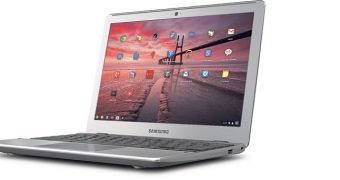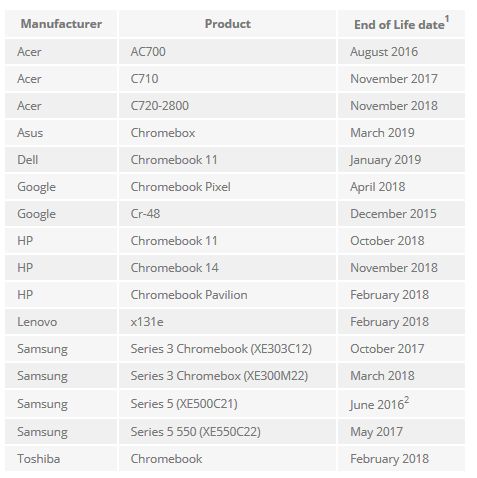When buying a Chromebook, most users are thinking about their super affordable price and their decent line-up of specs, but there are other issues to be taken into consideration when doing so.
For example, Google’s Chromebooks have an expiration date (EOL). This means that, after some years go by, the respective Chromebook will start receiving software updates and support. Until now, most Chromebooks life-cycles have tended to revolve around a minimum of four years, but this has now been extended to five years.
“When a device reaches End of Life (EOL), it means that the product model is considered obsolete and automatic software updates from Google are no longer guaranteed,” explains the official post.
As for Enterprise, reaching EOL phase translates into the inability to manage devices as expected using administrator control panel or access new management features. But this week Google announced it was updating its EOL policy, raising the bar from the minimum four years to at least five.
The count-down begins when a Chromebook is made available for consumer purchasing. For example, the Dell Chromebook 11 showed up in retail starting January 2014; therefore, its official support from Google will end around January 2019.
Google’s EOL policy includes many devices (like Chromebox) that were previously launched. So, Lenovo’s X131e Chromebook which has an expiration date set for February 2017 has been granted an extra year, thus its EOL ends February 2018.
From the Chrome-enhanced laptops, the Acer AC700 is scheduled to be sent off into Chromebook paradise the earliest, starting August 2016.
Most main-stream consumer picking up a Chromebook might not buy it thinking they will be using until the EOL expires. But for organized institutions, like public schools, the move makes sense. Businesses and schools usually acquire a large number of devices and expect to be able to use them for many years to come.
And keeping in mind that Microsoft has just stopped updating Windows XP, which remains quite widespread in many schools/business, extending the Chromebooks life cycle might be Google’s way of inviting the now-left-out-in-the-cold users to take up the Chrome OS platform.It has become increasingly difficult to tech giants like Google to continue offering support for older devices, considering the pace of hardware innovation, which asks for the continuous optimization of the next-gen hardware.
Before this announcement, the Chrome OS EOL policy seemed to include only devices aimed at enterprise and education users. But since Google is pushing software updates for these products, there’s no reason why it couldn’t do the same for the general public.

 14 DAY TRIAL //
14 DAY TRIAL // 

